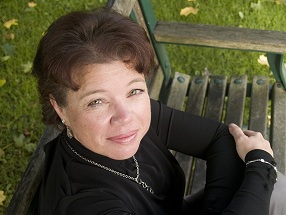Some research is more challenging than others and can't simply be done by tracking down leads on the Internet.
This week, Darlene Williams shares the details of one determined woman's effort to tell her story and another's dogged devotion to verifying and authenticating that narrative more than a hundred years later.
In 1861, Incidents in the Life of
a Slave Girl was published in Boston.
Edited by L. Maria Child, the author is noted as “Written by Herself”
and signed Linda Brent.
On the frontispiece, there are two quotations:
“Northerners know nothing at
all about Slavery. They think it is
perpetual bondage only. They have no
conception of the depth of degradation
involved in that word, SLAVERY; if they had, they would never cease their
efforts until so horrible a system was overthrown.”
--A Woman of North
Carolina
“Rise up, ye women that are at
ease! Hear my voice, ye careless daughters! Give ear unto my speech.”
--Isaiah xxxii.9
An appendix to Incidents in the Life of a Slave Girl
written by Amy Post dated October 30, 1859, Rochester, N.Y., states:
“The author of this book is my
highly-esteemed friend. If its readers
knew her as I know her, they could not fail to be deeply interested in her
story.
"…her appearance was
prepossessing, and her deportment indicated remarkable delicacy of feeling and
purity of thought.
"After the labors of the day
were over, she traced secretly and wearily, by the midnight lamp, a truthful
record of her eventful life.”
Lydia Maria Child, in her
introduction, asserts:
“I have not added any thing
[sic] to the incidents, or changed the import of her very pertinent
remarks. With trifling exceptions, both
the ideas and the language are her own.
I pruned excrescences a little, but otherwise I had no reason for
changing her lively and dramatic way of telling her own story.”
Child also claimed in her
introduction that she knew and trusted the author who wrote under the pseudonym
“Linda Brent”.
What follows is a gripping
narrative of a young slave girl stalked by a lecherous master well into
womanhood, who spared no effort, devious machination, or expense to claim his
ultimate goal: subjugation and
possession of Linda Brent. Linda Brent, for her part,
endured tribulations almost beyond belief, to prevent her master from victory
and protect her two young children, fathered by another man.
 |
| Harrier Jacobs/Linda Brent (Wikimedia Commons) |
For decades, the authorship of
Incidents in the Life of a Slave Girl
remained in dispute. Accepted scholarly
opinion, in particular that of Yale historian John Blassingame, claimed the
true author was Lydia Maria Child, while others maintained it was a work of
fiction. The events recounted in the
narrative are so fantastical as to be unbelievable. The lack of dates, names and places in the
narrative merely added weight to the theory it was a work of fiction, as did
anti-slavery laws that prohibited slave literacy.
So, who exactly was Linda
Brent? Professor Jean Fagan Yellin, who
had read Incidents in the Life of a Slave
Girl while working on her dissertation, spent over two decades of her life
pursuing the answer to this question. In her quest for the truth, Yellin,
obtained letters written by a Harriet Jacobs from amongst Child’s papers. When
she compared the contents of the letters and the narrative, she felt sure she
had found the answer.
Linda Brent was Harriet Jacobs,
a slave born in Edenton, North Carolina.
The next six years were spent
working in collaboration with researcher, George Stevenson, to authenticate
Harriet Jacobs as the author and subject of the slave narrative, Incidents in the Life of a Slave Girl.
In 1987, Harvard University
Press published Yellin’s edition of Incidents,
endorsed by Professor Blassingame, who reversed his earlier conclusion based on
Yellin and Stevenson’s research. One hundred twenty-six years
after publication, Harriet and her life were vindicated.
Incidents
in the Life of a Slave Girl is the single extant United States female slave
narrative. As such, it is a treasure.
Harriet’s narrative extends
beyond merely an archival anomaly. Her
identity was forgotten by history after her self-publication of Incidents. This astounding tale, written by a
courageous, determined woman who fought the tyranny of both slavery and master,
is deserving of rediscovery by this generation and those that follow.
Darlene Elizabeth Williams is
a historical fiction and nonfiction author, freelance writer and mentor. She is currently in the research stage for
her historical novel My Name is Harriet.
Darlene can be found at http://darleneelizabethwilliamsauthor.com/


Very interesting
ReplyDelete